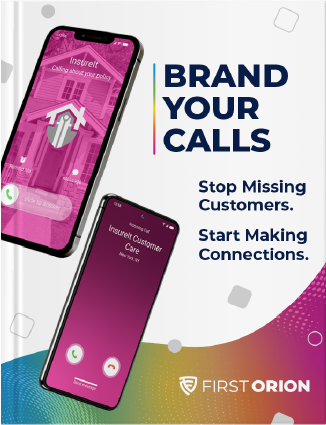Unknown numbers can be annoying – but picking up the phone and discovering it’s not even a real person on the other end? The worst. With over 4.5 million complaints about robocalls to the FTC last year, the National Do Not Call Registry Biennial Report to Congress shows that robocalls were the #1 call type in 2017. That’s nearly double the amount of complaints for live callers in the same year!

Shot of young man standing at his desk and working on computer. Businessman using computer in modern office.
Business is booming for the robocalling business. Federal Trade Commission data shows that consumer complaints increased in 2017 over 2016 by over 1,000,000. Robocalls topped the list of “Do Not Call” violations last year in six common forms:
- Debt Negotiators: Calls offering to reduce debt of credit cards, mortgages or student loans are a popular choice for robocall companies.
- Complete Silence: Answer the call and…no one is there. No voicemail, no person, nothing. Chances are, those don’t count as a completed call on the other end either, so you’ll hear from that number again.
- Vacation Offers: You’ve won a cruise! Check out this timeshare! Sometimes, these calls even “set sail” with a boat horn.
- Warranties or Protection Plans: Ever get a call to renew a warranty on a car you don’t even own?
- Fake ID: Lots of scammers pretend to be government, businesses or family and friends to get you on the line so they can scam you.
- Medical & Prescriptions: Not all robocalls are bad, after all. A lot of legitimate businesses like pharmacies, doctor’s offices, and schools use robo-dialing to reach their customers automatically.
Whether these are legitimate calls or scam, one thing is clear: Consumers aren’t interested in chatting it up with robots. The Do Not Call Registry has registered 226 million active users since its launch in 2003.
So why are robocalls continuing to explode after all of these regulations were put into place? Quite simply, they’re cheap and easy to execute. Super-cheap VoIP calling systems can make millions of foreign calls for pennies, in countries where U.S. regulations can’t touch callers. When paired with digital calling systems that spoof caller ID numbers, these dangerous calls can come straight to your area code. The days of only answering “local” calls are in the past; now, someone a continent away can look like your next door neighbor.
Despite the DNC registry being flawed in this aspect, the FTC is still constantly working to battle these calls. They’ve offered cash prizes at “hackathons” to produce better tech for identifying robocalls. They’re also releasing reported numbers on a daily basis in hopes that they’ll help with automated screening services. Of course, the FTC announced in early 2017 that they wanted carriers to do more to target and eliminate unlawful robocalls, some of which have already taken action. First Orion helps provide such services to carriers in the U.S. and abroad.
As far as personal solutions go, call privacy apps like PrivacyStar can help significantly cut the amount of bad actors who get through. Our database scans millions of numbers and identifies suspicious patterns. We even wrote about the life and death of a scam call on our blog. If you get a suspicious call, you can report it inside of the PrivacyStar app – which not only helps our database, but also gets reported directly to the FTC. With your reports, we can take down the robocalls once and for all.



